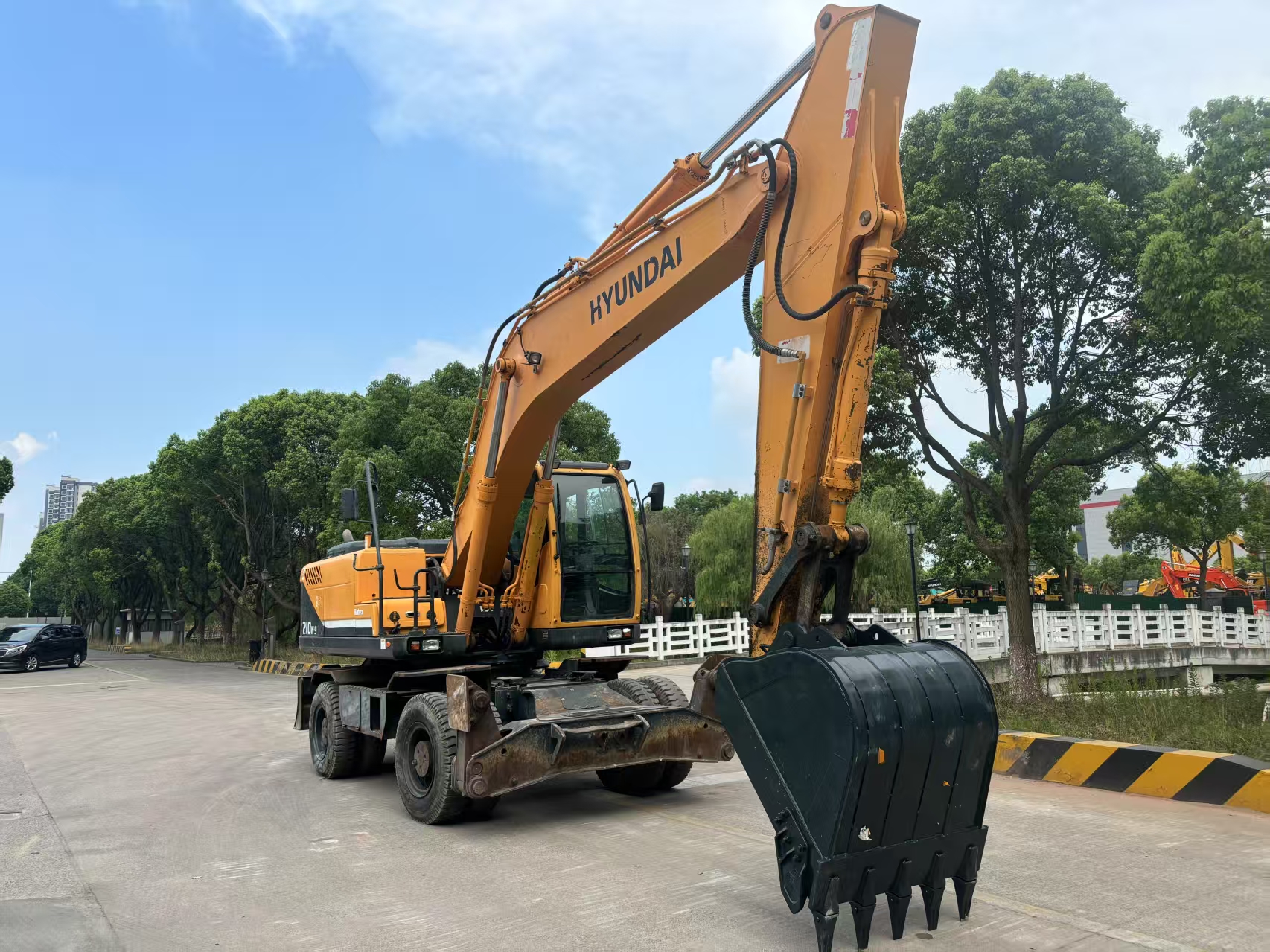What should foreign customers pay attention to when buying excavators in China?
When foreign customers purchase used excavators in China, they need to pay attention to the following aspects:

hyundai 210-9 used wheel excavator
Laws and regulations and import policies
Understand import regulations: Different countries have different policies and regulations on the import of excavators, including tariff rates, import license requirements, safety standards, etc. Foreign customers need to understand their country’s relevant import policies in advance to ensure that the purchased excavators can be smoothly imported back to the country.
China’s export regulations: After purchasing an excavator in China and exporting it, it is necessary to comply with China’s relevant export regulations, such as handling export customs declaration procedures. Customers can consult professional customs brokers or freight forwarding companies to understand the specific operating procedures and requirements.
Product selection and quality
Choose products according to needs: Excavators come in a variety of models and specifications, suitable for different working conditions and operating requirements. Foreign customers should choose the appropriate excavator model and configuration according to their actual work needs. For example, excavators used for mining need to have greater digging force and loading capacity, while excavators used for urban construction need to pay more attention to flexibility and environmental protection performance.
Inspect product quality: Before purchasing, customers should conduct on-site inspections and tests of excavators as much as possible to check the appearance, assembly quality, brand and quality of parts, etc. of the product. You can also check the user reviews and market reputation of the excavator model to understand its performance and reliability in actual use.
Supplier selection
Choosing a regular supplier: Choosing a supplier with good reputation and qualifications is the key to ensuring a smooth purchase. Customers can find regular excavator manufacturers or authorized dealers through online searches, industry recommendations, and exhibitions. Avoid cooperating with some small businesses that do not have legal qualifications or poor reputation to avoid being defrauded or purchasing counterfeit and shoddy products.
Investigating the strength of suppliers: Investigate the supplier’s production capacity, R&D capabilities, after-sales service capabilities, etc. Understand the supplier’s production scale, production equipment, technical team, etc. to evaluate the quality of its products and the stability of supply. At the same time, good after-sales service is also an important factor in ensuring the long-term and stable use of excavators. Customers can understand the supplier’s after-sales service network at home and abroad, the technical level of maintenance personnel, and the timeliness of spare parts supply.
Price and contract
Clear price terms: When negotiating prices with suppliers, it is necessary to clarify the specific contents of the price, such as equipment price, transportation costs, insurance costs, installation and commissioning costs, etc. At the same time, pay attention to the impact of exchange rate fluctuations on prices, and negotiate to determine the appropriate payment method and settlement currency.
Sign a detailed contract: A formal contract must be signed when purchasing an excavator. The contract should specify the rights and obligations of both parties in detail, including product model, specifications, quantity, price, delivery time, delivery location, quality standards, after-sales service terms, liability for breach of contract, etc. Before signing the contract, customers should read the contract terms carefully to ensure that their rights and interests are fully protected. If there are any unclear or unreasonable places, they should be negotiated with the supplier for modification in a timely manner.
Logistics and Transportation
Choose a mode of transportation: Choose a suitable mode of transportation based on the size and weight of the excavator and the geographical location of the importing country. Common modes of transportation include sea, air and land transportation. Sea transportation is relatively cheap, but the transportation time is longer; air transportation is fast, but the cost is higher; land transportation is suitable for countries or regions adjacent to China.
Transportation insurance: During transportation, the excavator may face various risks, such as damage, loss, etc. In order to protect their own interests, foreign customers should purchase sufficient transportation insurance. When purchasing insurance, you should carefully read the insurance terms and understand the scope of insurance liability, claims procedures and other related contents.


